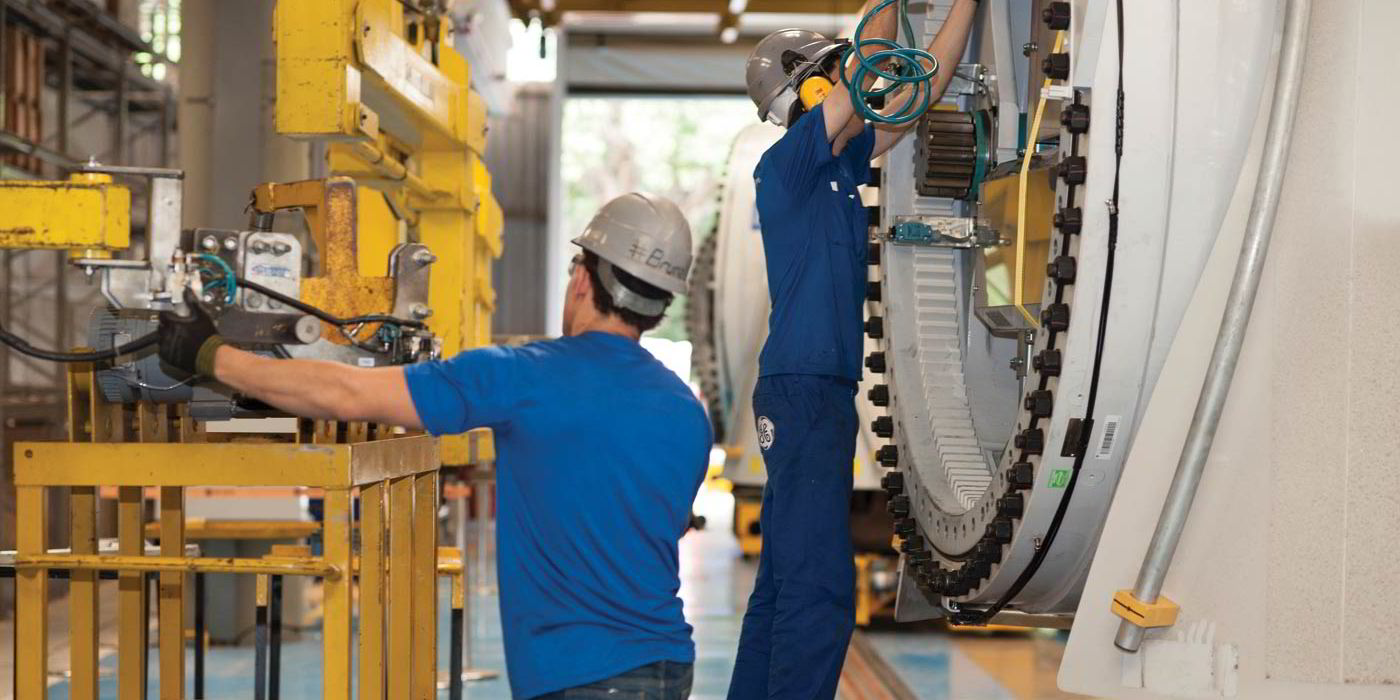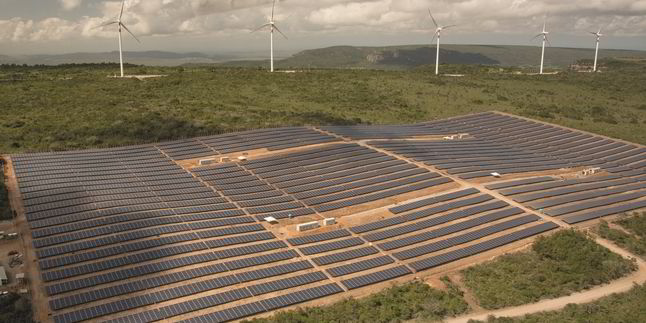Brazil’s wind and solar industries have slammed the cancellation of the nation’s 19 December reserve tender as a “hard blow” and “counter-sensible”, warning that billions of dollars of investment are at risk and factories could grind to a halt in 2018.
“It’s a sad day for the solar sector in Brazil,” Rodrigo Sauaia, CEO of the Brazilian Solar Power Association (Absolar) told Recharge.
“In the end, it’s a very negative signal for a sector that has been contributing to the recovery of the country’s economic growth.”
Sauaia said the decision would affect potential investments of some R$9bn ($2.7bn) in new projects and supply chain on offer if the 1.5GW in new solar contracts promised by government earlier this year were fulfilled.
The wind sector predicted that more than R$65bn invested in the past decade to build 11GW of capacity and six wind turbine assembly plants would be at risk.
Élbia Gannoum, executive president of the Brazilian Windpower Association (ABEEólica), said: “At a time when the government itself signals it will announce a series of measures to stimulate new investments, it’s very counter-sensible do demobilise a young industry based on very high investments made in recent years, [an industry] that doesn’t need extraordinary measures and that has been registering consistent growth.”
She warned: “With no contracts in 2018, we’ll have factories standing practically idle in 2018.”
Yesterday the government said it would cancel the tender, claiming that distributors have contracted 9GW more than they need through 2020 and that the auction would overburden consumers if extra power was bought.
The 19 December tender had attracted 21GW of wind and 13GW of solar projects in what would have been the last chance to contract power in 2016 after the cancellation of tenders earlier this year.
This will be the first year since 2009 that Brazil will not contract any new wind projects, while for the solar industry it puts a brake on the government’s 2014 policy to introduce that technology into the country’s power mix.
Steve Sawyer, secretary general of the Global Wind Energy Council (GWEC), said the cancellation reflects the economic and political difficulties facing a nation that “has been one of the bright spots” for the industry, but which could now face “a rough couple of years”.
“It does not bode well, especially for the companies that have invested in plant in response to the local-content requirements,” Sawyer told an online seminar today.
He said while previous year’s tender rounds would keep the industry humming for a while, the Brazilian market “could shrink dramatically unless there’s some new procurement in the next year”.
Today local press reported that Brazil’s economy could shrink by almost 4% in 2016 after contracting by 3.4% in 2015, resulting in reduced demand for new power.
Led by the industrial sector, electricity consumption fell 1.7% in 2015 from 2014, and in the first 10 months of 2016 demand shrunk another 1.1% compared to the same year-ago period.
Absolar said it would continue its dialogue with the government in an effort to understand fully the reasons behind the cancellation, and to urge Mines and Energy Ministry officials to implement five- to 10-year visibility for the sector.
Sauaia said: “It will be a very arduous road to recover the lost credibility after the government has been promising that the tender will be held, and that solar power was firmly in the government’s plan.”
With around 30 wind and solar companies, investment funds and utilities registering over 1,200 projects for the tender, losses from the development of projects, licensing, legal advice and negotiations with suppliers could run into the tens of millions of dollars.
The cancelled tender aimed to contract new power with 20-year PPAs starting in July 2019.
“Imagine spending two months negotiating the acquisition of projects, carrying out legal and engineering due diligence, and then raising guarantees for the tender? So, if you take into account financial costs and commissions paid, it’s not impossible for companies to have spent over R$1m,” one developer told Recharge.
“For some, it’s money thrown down the drain.”
During the past few months, with support from the solar and wind industries, the Michel Temer administration has started a debate to revamp the power sector, saying it would introduce new, more market-friendly rules, attract new private financing for the renewables sector, and bring about a tender system less reliant on arbitrary government decisions.
One of the most constant debates was about the reserve tenders – through which the government contracts stand-by power with costs divided among all 80 million consuming households – and whether such tenders should be used by the government to introduce new technologies into Brazil’s hydro-thermal power mix.
Ministry officials said this might come out as more expensive for consumers as demand falls.
“The reserve tender was used for the contracting of new technologies, but it isn’t the only way. The government has some good ideas such as hybrid and regional tenders,” said Sauaia.
ABEEólica has commissioned studies to show that, despite over-contracted power distributors, the government had to continue contracting new projects to guarantee supply security when the economy started recovering.
“A power tender is not planned to supply demand tomorrow or for next week, but it aims to allow efficient planning for what we’ll consume in the future ... We’ll go back to Brazil’s historic stop-start for lack of a more ample analysis of the situation,” said Gannoum.
“The surcharge for stand-by power works as a kind of insurance against lack of power supply.”
According to studies commissioned by the trade group, excess physical generation capacity was only 1.5GW.
The government said that the cancellation of the tender does not mean a change in its long-term renewables policies, and that more detailed studies are needed to understand how many projects will effectively come online in coming years.
However, the sector is now wary of Brazil. With six turbine makers risking a cliff in contracts by 2019 and the fledgling solar industry confirming only two Tier 1 module making factories in the country, investors could look elsewhere in the region for new opportunities.
Argentina, Mexico, Chile and even Colombia are implementing new renewable auction programmes.
“We’re revising our budget for next year and we could even let go of people here in Brazil,” said a wind developer who asked not to be named. “Worst of all is the uncertainty this generates. After this, what credibility will a new tender hold?”


